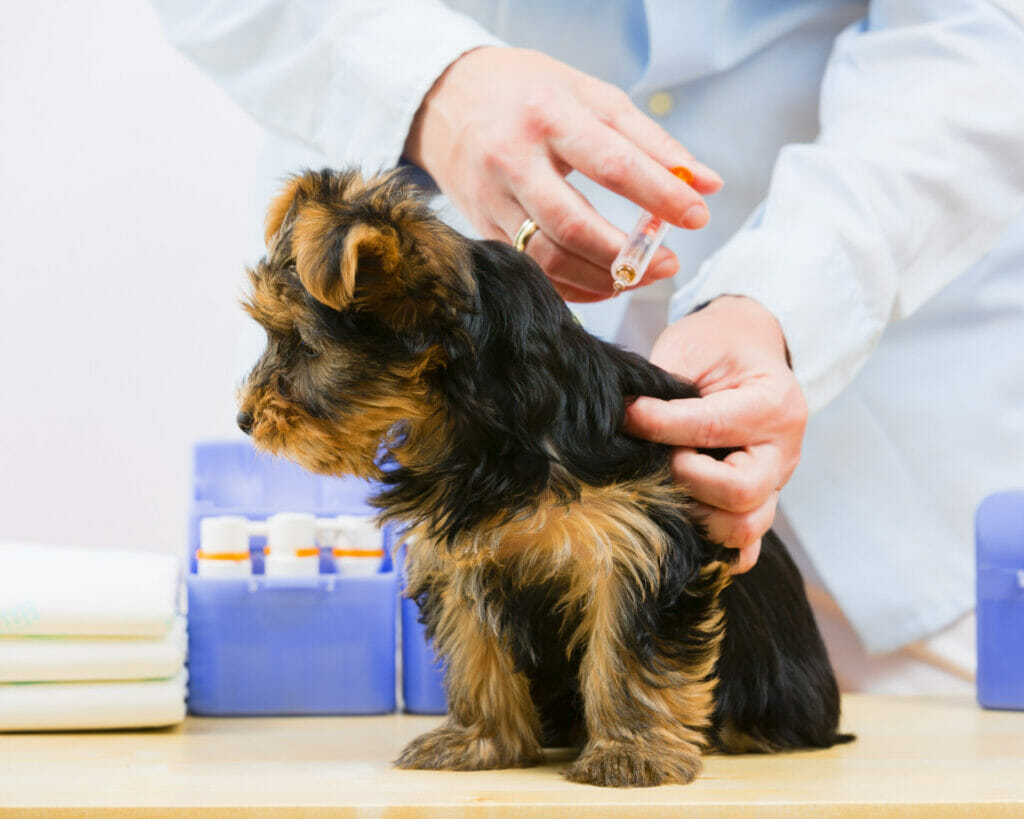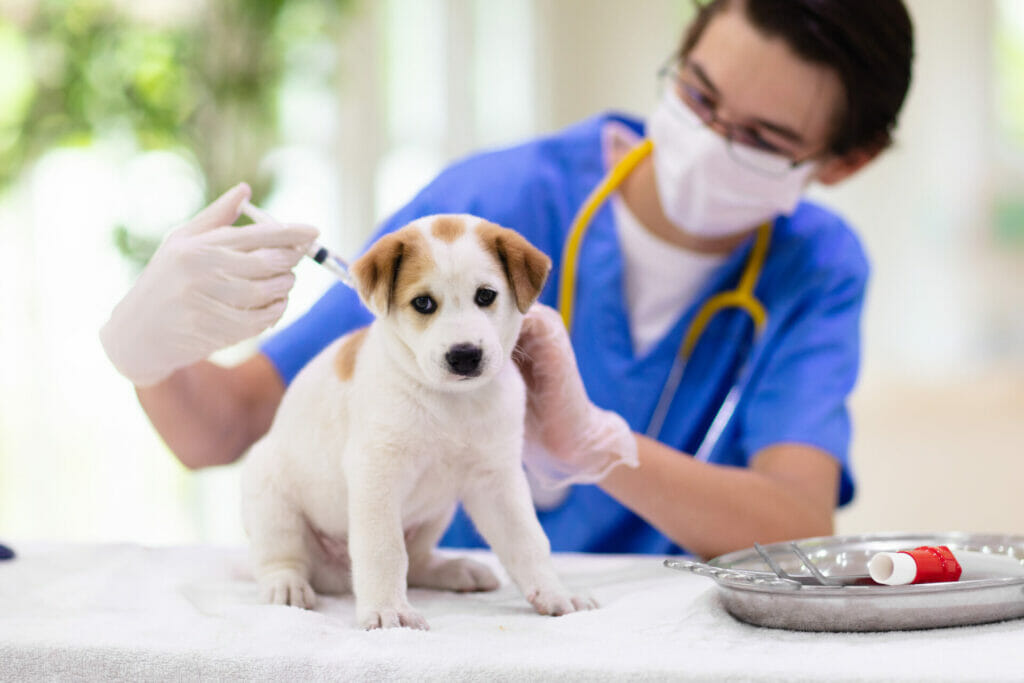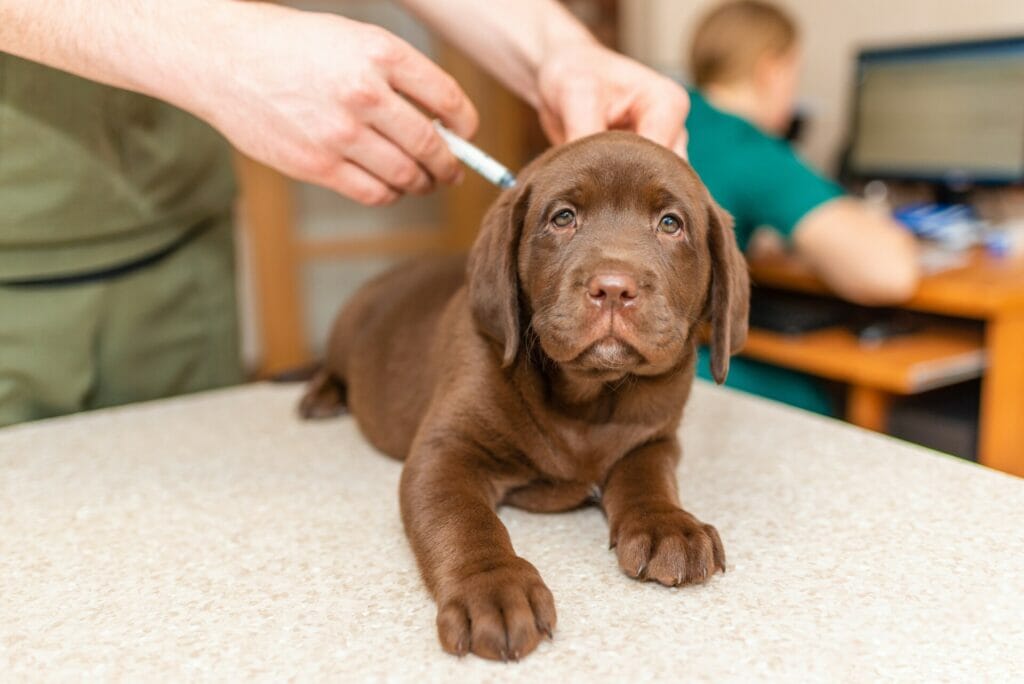We sat down with resident Veterinarian, Dr. Stephanie Liff to discuss puppy vaccinations, why they’re important, what to know about the schedule for vaccinating a new puppy, and everything important in order to make an informed decision about which vaccines your pup should receive.
Why is it important to vaccinate your dog and what are the risks of not vaccinating your dog?
It is important to vaccinate your dog in order to build their immune system up against common viruses. These include rabies, distemper, parvo, and Lyme among others. While the risk of rabies is low (there hasn’t been a canine case in New York City in 40+ years) the law exists so it’s something pet parents must do. In terms of distemper and parvo, both diseases exist in the country and are frequently seen in dogs. Rescue dogs frequently come in with parvo, often the emergency clinics are treating a case a week and if dogs are not vaccinated, it is very contagious and they can be highly susceptible to catching it. Additionally, distemper causes neurological issues so can be a public health issue for people as well since affected dogs can bite humans.

How are vaccinations administered and will it hurt when my dog receives them?
Vaccinations in dogs are different than in people, they are administered subcutaneously (or under the skin) rather than in the muscle so while they might see some injection site sensitivity, it won’t hurt in the way a human’s arm becomes sore. Often you will see a reaction because pups don’t want to sit still.

What are the side effects you should expect?
There shouldn’t usually be side effects but similar to human vaccinations, there is an extremely rare chance of an adverse reaction (smaller than .04%) in puppy vaccinations. These reactions could range from anaphylactic shock, facial swelling, hives, lethargy, etc, and in the really rare case, even death.
What’s a typical puppy vaccination schedule?
The typical vaccine schedule and frequency varies by region and by vaccine company; every company has a different line so sometimes there can be more than one vaccine in one vial (such as a combo shot). Similarly, by region, there is variation in terms of risk. In the Northeast, it is common for a puppy to receive distemper and parvo shots every 3-4 weeks until over 16 weeks of age and then every 3 years (according to AHA vax protocol), lepto twice 2-4 weeks apart, and then annually, rabies annually, and Lyme annual after initial series. Whereas on the West coast where distemper is very common some vets won’t wait every 3 years but instead provide it every year. Similar in the South with the rabies vaccine where they provide it more frequently.

How important are boosters?
It depends– for puppies it is important to have them go through a full series of vaccinations in order to provide them a long-standing and robust immunity– Repeated exposure gives more antibodies and longer-standing immunity but if your pup has a low risk of infection and greater reaction to vaccines it’s not necessarily required. Your vet can look at antibody levels and define in a ratio when a booster is required (whether they should be protected if they’re borderline protected, or if a booster is needed). Natural immunity doesn’t occur for Lyme disease which can only be spread via ticks.
What’s a typical cost for vaccinations?
The national avg for vaccinations is between $20-35 but in many cities such as New York City, vaccines usually cost around $50-60. Nevertheless, there are many places that provide free vaccination events. The state will pay for a rabies vaccine since it is required by law and often places will subsidize the cost but those clinics do not provide a follow-up appointment so if there are any reactions, you will need to bring your pup to an emergency clinic. Nevertheless, these free vaccination events are a great resource for pet parents.

What else should pet parents know about vaccinations?
In the best of scenarios, it is important to be educated in order to understand the risk factors involved as well as what vaccines your pup absolutely needs and which ones they might not. If your puppy needs it, they should be vaccinated, but some less risky ones aren’t always necessary so it can be worth the discussion with the vet. You shouldn’t be shy to speak with your vet about your pup’s lifestyle and the risk factors in their life in order to make informed decisions. But while some diseases aren’t deathly, vaccinated dogs overcome them significantly better than unvaccinated ones.
Do you have questions about vaccinations for your pup based on your region? Reach out to us at whatthepup@spotandtango.com!




















